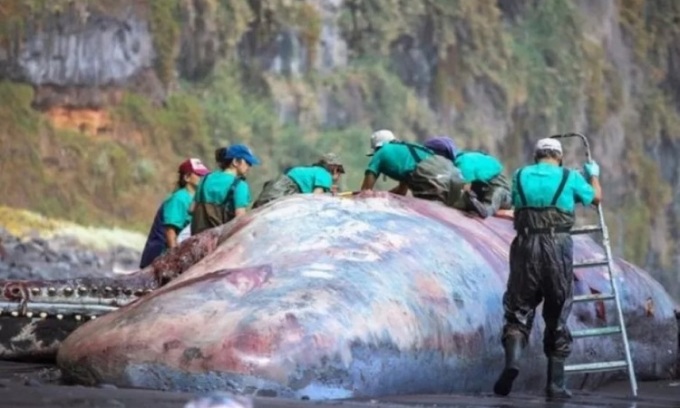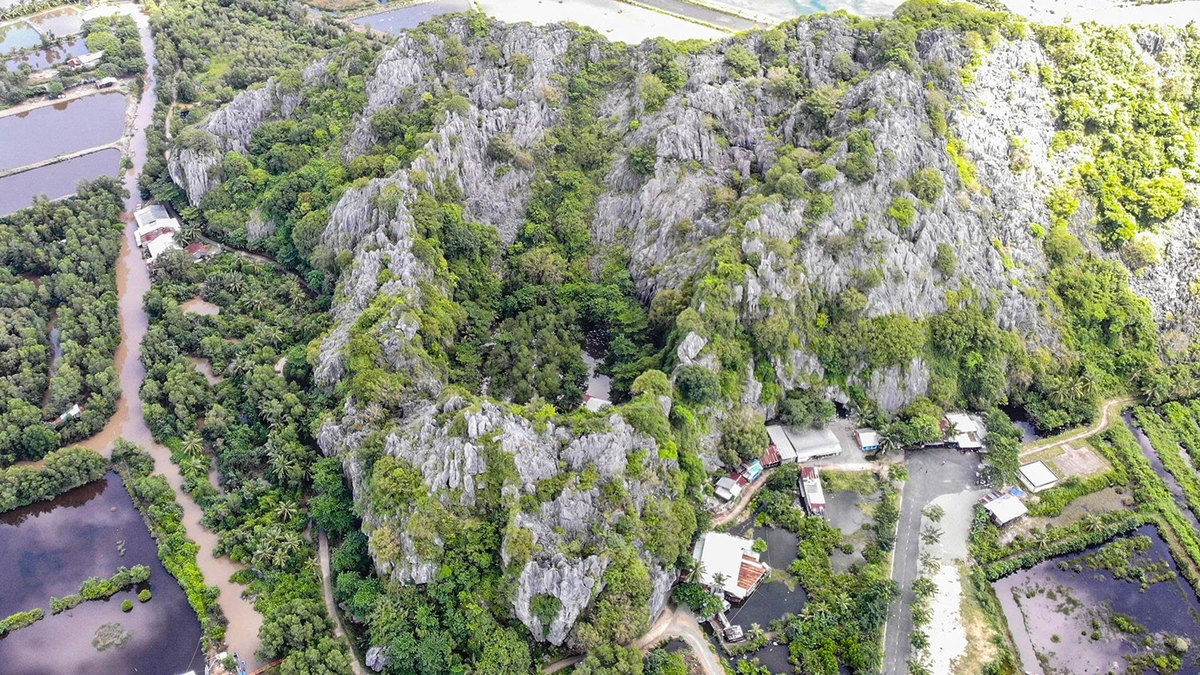Spain Experts found a rare lump of ambergris, also known as "floating gold," in the carcass of a sperm whale that washed up on La Palma Island, near the Canary Islands, in June.

Sperm whale carcass washed up on La Palma Island. Photo: IUSA
A team of veterinary pathologists from the University of Las Palmas de Gran Canaria (ULPGC) traveled to the stranding site to investigate the cause of the whale's death. Initially, they ruled out injuries caused by human activity, so the investigation shifted to focus on natural causes, Newsweek reported on July 5.
During the investigation, Antonio Fernández, director of the Institute for Animal Health and Food Security (IUSA) at ULPGC, found a large, hard lump of ambergris in the fish’s intestine, measuring approximately 50-60 cm in diameter and weighing 9 kg. This rare object has an estimated value of approximately $545,000.
Ambergris is a waxy, rock-like substance with a strong odor that forms in the digestive system of sperm whales. It sometimes floats in the sea or washes ashore around the world . Ambergris is highly valued. In the past, it was used as a medicine and even as an aphrodisiac. Perfumers also favored it because it made the scent last longer. Today, it is found only in the most expensive perfumes due to its cost and availability.
Sperm whales eat large quantities of cephalopods, such as squid and cuttlefish, which have beaks and other indigestible body parts. Most of the time, sperm whales regurgitate these parts. But occasionally they pass through the whale's intestinal tract. Experts believe that sperm whales produce ambergris in this situation to lubricate the passage of solid objects and protect their internal organs. However, the compound is so rare that it has only been found in less than 5% of sperm whale carcasses. The ambergris is eventually excreted through the rectum, but in some cases can cause dangerous blockages that can kill sperm whales.
In the case of La Palma, Fernández said the ambergris blockage could have caused intestinal injuries in the sperm whale, leading to infection and death. IUSA is looking for a buyer for the ambergris to raise funds for victims of the 2021 La Palma volcanic eruption. In his 30-year career, Fernández has examined more than 1,000 whales, including 50 sperm whales, but has never encountered ambergris before.
An Khang (According to Newsweek )
Source link






![[Photo] Unique architecture of the deepest metro station in France](https://vphoto.vietnam.vn/thumb/1200x675/vietnam/resource/IMAGE/2025/11/14/1763107592365_ga-sau-nhat-nuoc-phap-duy-1-6403-jpg.webp)































![[Photo] Special class in Tra Linh](https://vphoto.vietnam.vn/thumb/1200x675/vietnam/resource/IMAGE/2025/11/14/1763078485441_ndo_br_lop-hoc-7-jpg.webp)
![[Photo] Unique art of painting Tuong masks](https://vphoto.vietnam.vn/thumb/1200x675/vietnam/resource/IMAGE/2025/11/14/1763094089301_ndo_br_1-jpg.webp)









































































Comment (0)